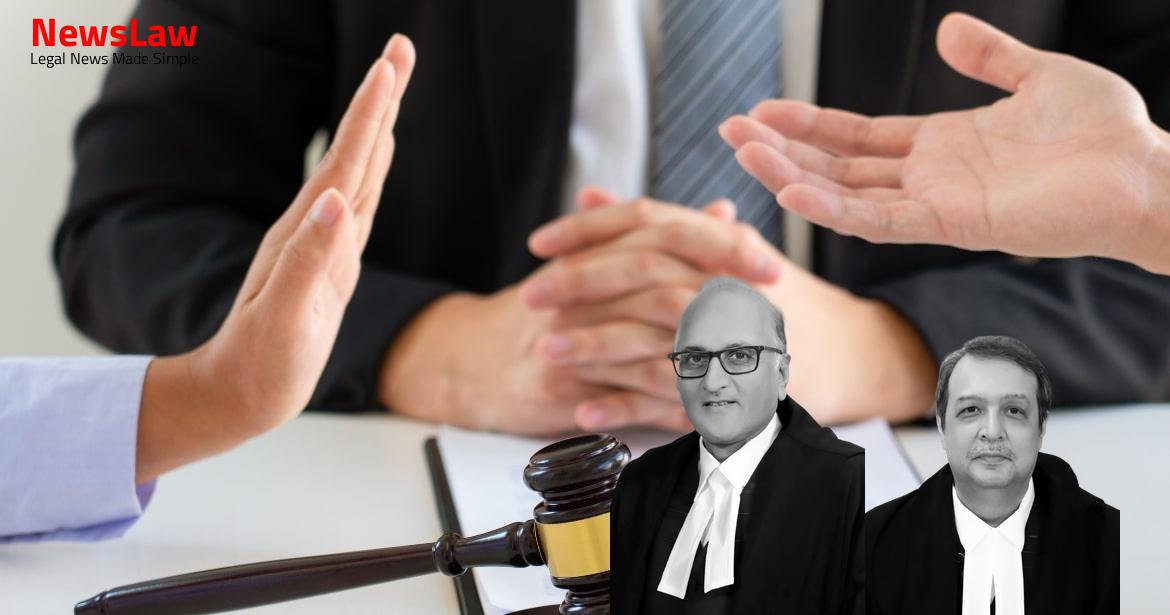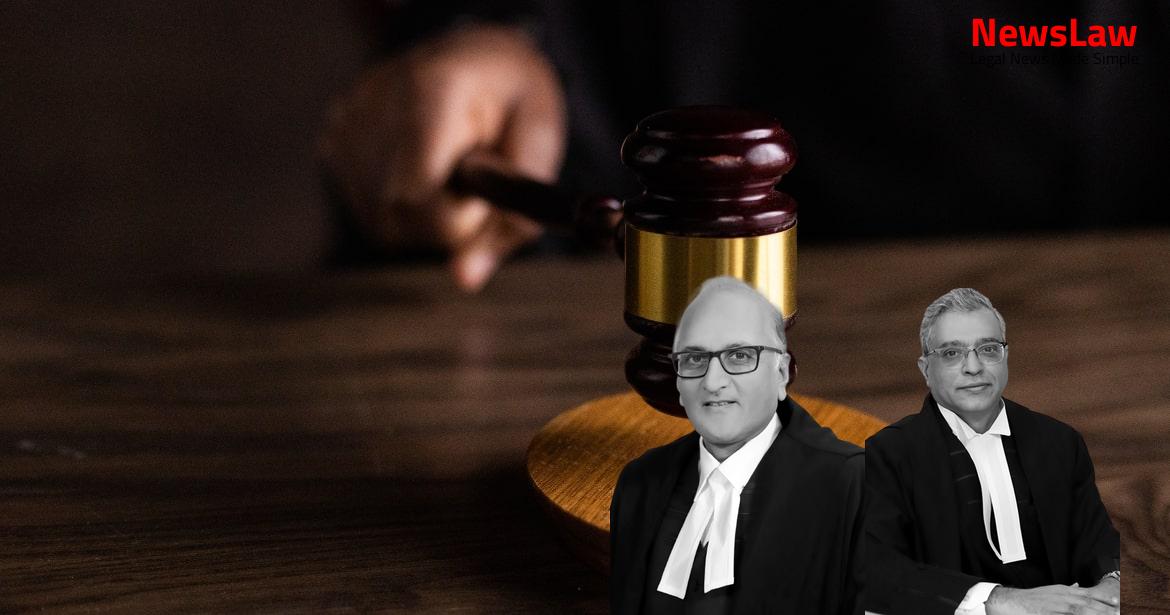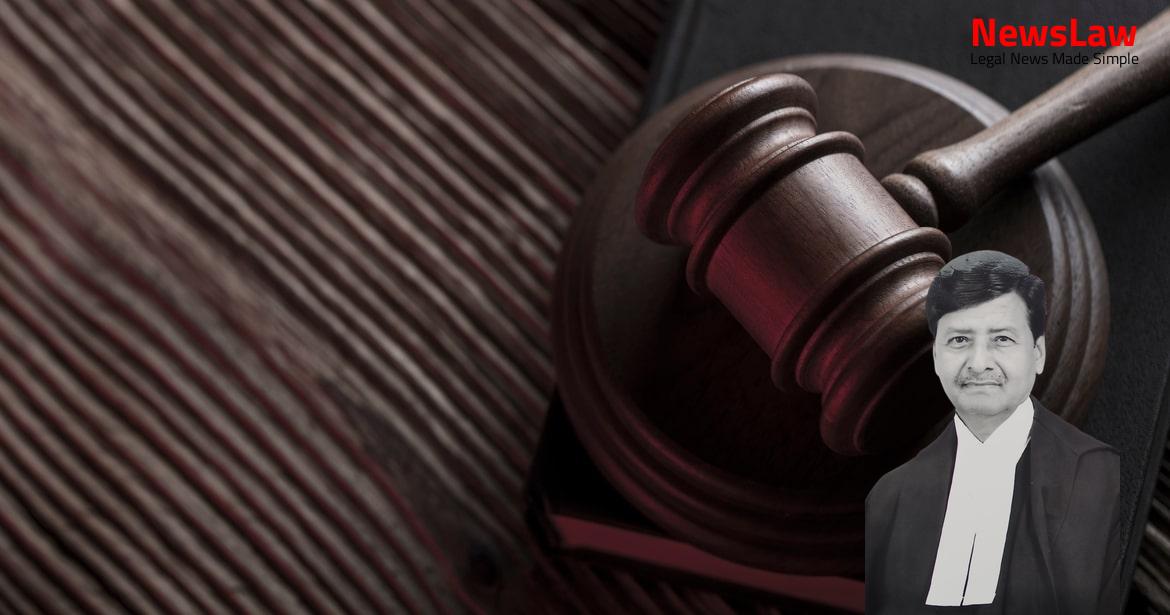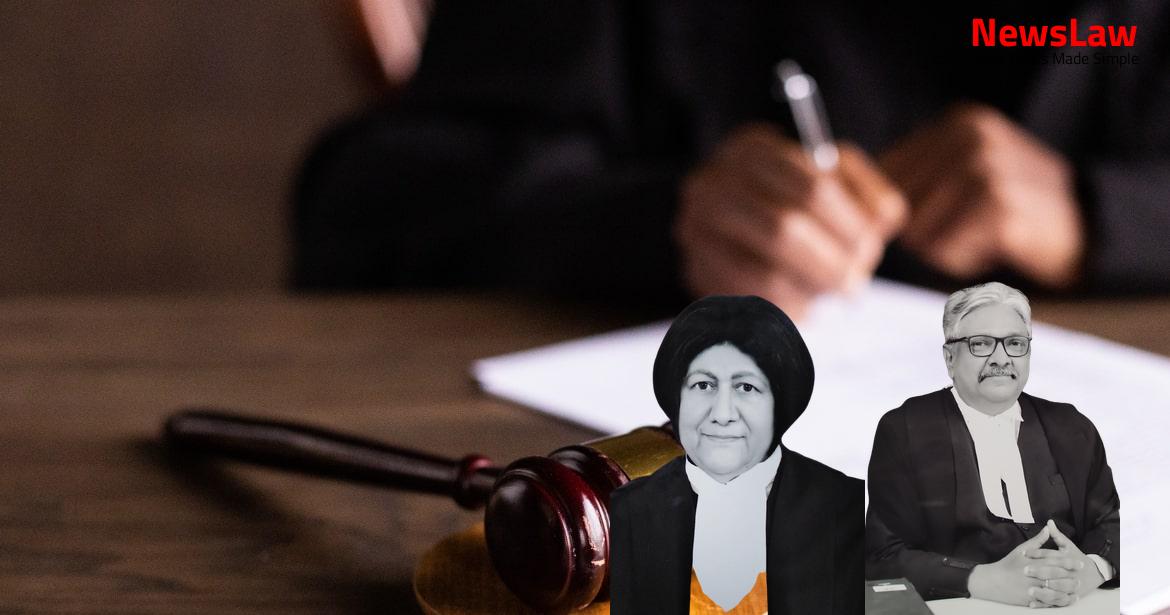Delve into the intricate legal analysis conducted by the court regarding property succession and the applicability of the Rule of Primogeniture in a recent case. Gain insight into the nuanced examination of personal laws versus traditional inheritance rules, shedding light on the complexities of succession in the legal realm.
Facts
- The document discussed the succession to the properties shown as private properties in the Covenant.
- Kanwar Manjit Inder Singh, the younger brother of the Ruler, filed a Civil Suit regarding the succession to the properties left by the Ruler.
- The Ruler executed the Second Will in 1952, dealing with the properties specified in the First Will.
- The Covenant guaranteed the succession to the Gaddi of each Covenanting State and personal rights according to law and custom.
- The controversy in the matter pertained to the succession to the properties of Raja Harinder Singh, former ruler of Faridkot State.
- The Ruler’s Third Will, allegedly executed in 1982, declared the inheritance of his property by a Trust known as ‘Maharwal Khewaji Trust’.
- The Third Will specified the inheritance of the properties by the Ruler’s two daughters in equal shares, excluding the eldest daughter.
- The eldest daughter, not receiving any share in the property, filed a Civil Suit seeking a share in the properties left by the Ruler.
- A settlement in 1955 specified the exclusion of the eldest daughter from financial benefits until specific conditions were met.
- An application was made later seeking a declaration that the alleged Third Will of the Ruler was invalid.
- The Trial Court considered the applicability of the Rule of Primogeniture to the properties left behind by the Ruler.
- Alternatively, it examined whether the provisions of the Hindu Succession Act, 1956 would be applicable.
- The conclusion drawn by the Trial Court was crucial in determining the succession of the properties.
Also Read: Balancing Power and Transparency: Electoral Bonds Struck Down, Disclosure Mandated
Issue
- The High Court considered the validity of the Raja of Faridkot’s Estate Act, 1948, and ruled it not applicable for succession to the estate.
- The plaintiff was deemed entitled to a 1/3 share of the suit property under the Hindu Succession Act.
- The question of whether defendant no.6 inherited all properties of Late Raja Harinder Singh under Primogeniture was raised.
- The issue of succession according to Article 14 of the covenants of Pepsu, guaranteeing succession to the Gaddi of each Covenanting State, was discussed.
- The Trial Court found the Third Will of Raja Harinder Singh to be invalid due to suspicious circumstances.
- The question of territorial jurisdiction for the trial of the suit was raised.
- The validity of Trusts named Faridkot Ruling Family Housing Trust and Maharwal Khewaji Trust was considered.
- The question of whether the plaintiff could inherit the entire estate as the eldest surviving child was posed.
- The suit also questioned the joint family and ancestral coparcenary nature of the property left by Raja Harinder Singh.
- The issue of rendering accounts by the defendants for their management of the properties was also raised.
- The applicability of the Hindu Succession Act in governing the inheritance of Raja Harinder Singh’s property, leading to the plaintiff and defendants no.1 and 2 inheriting equally, was discussed.
Also Read: Recall of Resolution Plan Approval: Legal Analysis
Arguments
- Mr. V. Giri, Senior Advocate, supported the petition and challenged the findings on the Will executed by Maharani Mohinder Kaur.
- Mr. Krishnan Venugopal, Senior Advocate for the petitioners, argued for the Rule of Primogeniture to pass properties to the male successor, Kunwar Manjit Inder Singh and his son Bharat Inder Singh.
Analysis
- The Ruler of each covenanting State was required to make over the administration of his State to the Raj Pramukh by August 20, 1948.
- Upon making over the administration, all rights, authority, and jurisdiction belonging to the Ruler would vest in the Union as per the Covenant or the Constitution to be framed.
- The duties and obligations of the Rulers pertaining to the Government of the Covenanting State would devolve on the Union and be discharged by it.
- All assets and liabilities of the Covenanting State would become the responsibility of the Union.
- The Covenant dated 05.05.1948 does not mention or guarantee the Rule of Primogeniture.
- Upon integration of States, the Ruler had to submit a list of private properties to be approved for full ownership and enjoyment.
- The personal privileges and rights of the Ex.-Ruler are separate from his private properties.
- The Rule of Primogeniture does not apply to the succession of private properties after the merger with the dominion of India.
- The succession to the Gaddi of the Faridkot Estate was under the British Crown’s paramountcy.
- No distinction existed between the private and State properties of the Ruler before the Covenant.
- The private properties retained by the Ruler post-Covenant are considered his personal properties, excluding other royal family members.
- The grant of private properties to the Ruler was an Act of State and cannot revert to their previous character.
- The Third Will was deemed fabricated, leading to intestate succession.
- Specific customs like primogeniture need to be pleaded and proven with evidence.
- The guarantee under the Covenant was solely for the succession to the Gaddi, not the private properties.
- Private property succession is subject to personal laws rather than the Rule of Primogeniture.
- The distinction between Gaddi and private properties is clear; Gaddi does not include private properties.
- The appellant claimed the property to be ancestral to attract the Rule of Primogeniture.
- Ancestral nature can be proved by producing Excerpt (Intekhab) /pedigree table.
- Properties in various locations were proven to be self-acquired properties.
- The testator expressed the wish for the estate to devolve on the minor daughter of Rajkumari Devinder Kaur.
- The Will of Maharani Mohinder Kaur was proved beyond doubt.
- Succession to the properties of the deceased Raja Harinder Singh was by principles of intestate succession.
- The appellant would succeed to a proportionate share of late Maharani Mohinder Kaur based on her registered Will.
- The claim based on Law of Primogeniture for succession to the estate is dismissed.
- Personal property is different from personal rights, privileges, and dignities of the Ruler.
- Reference was made to relevant legal cases for clarification and support.
- Specific clauses from the Will of Maharani Mohinder Kaur were considered.
- High Court findings fully justified, no grounds for challenge.
- Maharani Mohinder Kaur’s share in properties governed by validly executed Will.
- No reason to entertain challenges to Will’s validity.
- Rule of Primogeniture found inapplicable based on court findings.
Decision
- The Registry is directed to send a copy of the order to the mentioned Banks.
- Details of expenses and credits to be recorded periodically, with reports due on specific dates.
- Special Leave Petition (C) Nos. 11206-11208 of 2020 dismissed without costs.
- Special Leave Petition (Civil) Nos. 10211-10213 of 2020 dismissed without costs.
- Orders related to maintaining status quo, filing of accounts by Maharwal Khewaji Trust, and operation of bank accounts issued by the Court.
- Direction given to Trust regarding operation of its accounts strictly for specific purposes.
- Succession details mentioned regarding Maharani Mohinder Kaur and appellant.
- Final directions in the matter include sending all reports to Trial Court, time limit on running the Charitable Hospital, maintenance of properties till further orders, and the disposal of Special Leave Petitions.
Case Title: MAHARANI DEEPINDER KAUR (SINCE DECEASED) THROUGH LRS. Vs. RAJKUMARI AMRIT KAUR (2022 INSC 934)
Case Number: SLP(C) No.-009151-009153 / 2020



